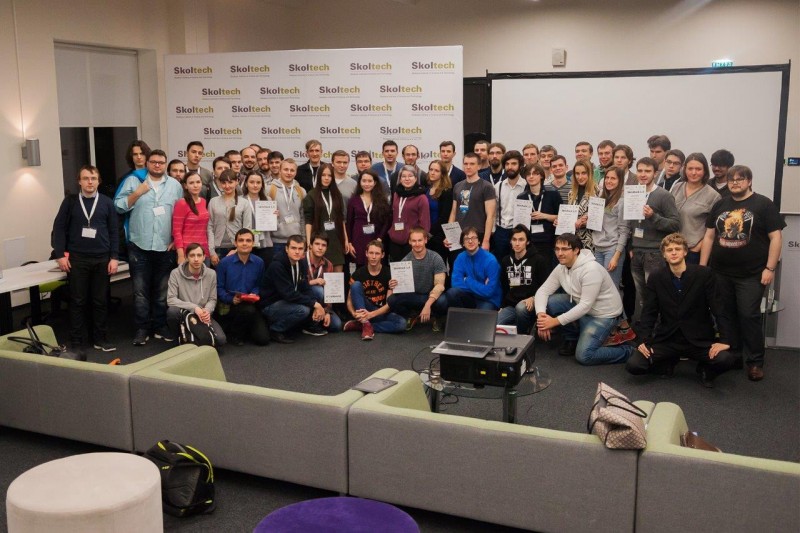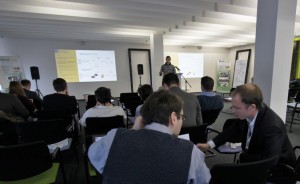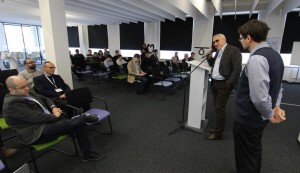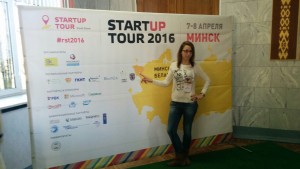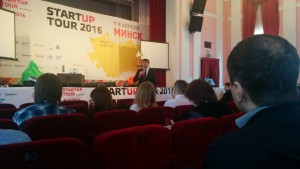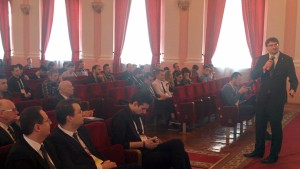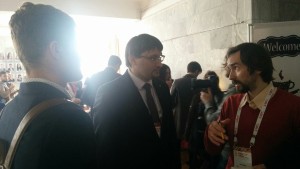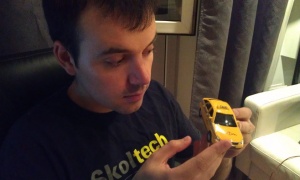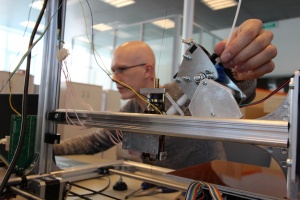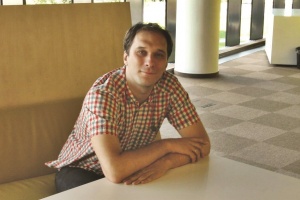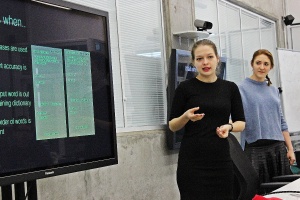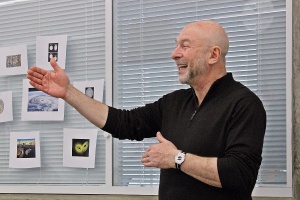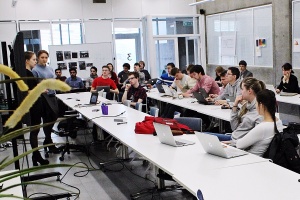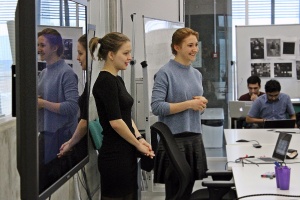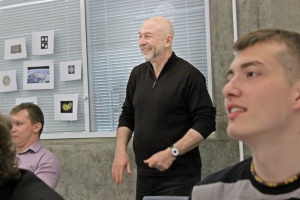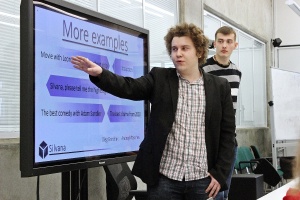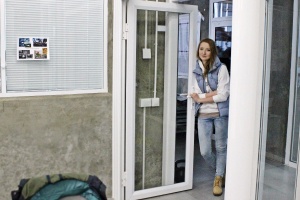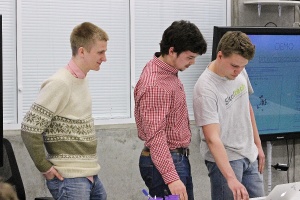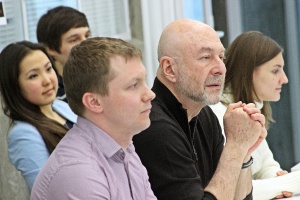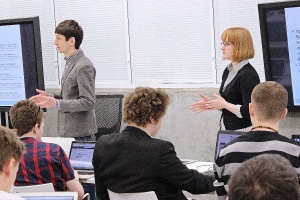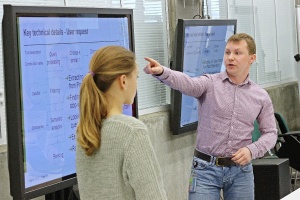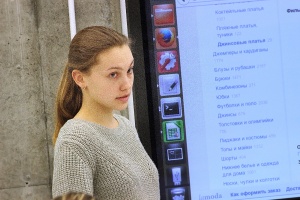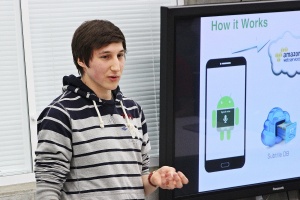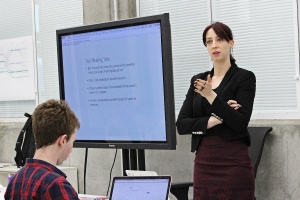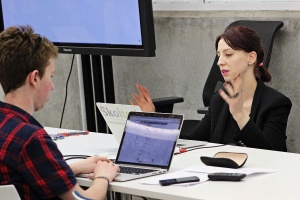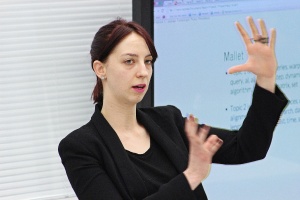On November 9-13, Skoltech hosted the SkinHack 1.0 Hackathon on computer vision. The Hackathon was organized by Youth Laboratories, a resident company of Skolkovo Innovation Center IT cluster, together with Skoltech Center of Entrepreneurship and Innovation, in partnership with Beiersdorf AG, Nvidia, Sberbank and iPharma. A team of Skoltech students won one of the two tracks of the Hackathon.
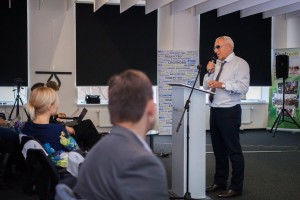 The Hackathon challenged algorithm developers and students from top universities in Moscow to work on recognizing and analyzing imperfections of the human skin. SkinHack is the first hackathon in AgeNet series, intended to develop comprehensive biomarkers of aging. SkinHack Hackathon was opened by President of Skoltech, Prof. Alexander Kuleshov, himself a specialist in the field of information technologies and mathematical modeling.
The Hackathon challenged algorithm developers and students from top universities in Moscow to work on recognizing and analyzing imperfections of the human skin. SkinHack is the first hackathon in AgeNet series, intended to develop comprehensive biomarkers of aging. SkinHack Hackathon was opened by President of Skoltech, Prof. Alexander Kuleshov, himself a specialist in the field of information technologies and mathematical modeling.
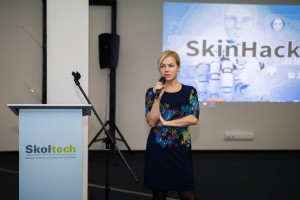 During the first day of Skinhack, the participants attended lectures on computer vision, machine learning and deep learning given by top professionals from Sberbank (Natalia Romenskaya), Vision Labs (Sergey Milyaev), Insilico Medicine (Alex Zhavorokov, Ivan Ozerov), Youth Laboratories (Konstantin Kiselev), NVIDIA (Dmitriy Konyagin), Beiersdorf AG (Sven Clemann). In addition, the two tasks for the Hackathon were announced – accurate age prediction from facial structure and wrinkles tracking, well-known signs of aging, and criteria to assess one’s physical shape.
During the first day of Skinhack, the participants attended lectures on computer vision, machine learning and deep learning given by top professionals from Sberbank (Natalia Romenskaya), Vision Labs (Sergey Milyaev), Insilico Medicine (Alex Zhavorokov, Ivan Ozerov), Youth Laboratories (Konstantin Kiselev), NVIDIA (Dmitriy Konyagin), Beiersdorf AG (Sven Clemann). In addition, the two tasks for the Hackathon were announced – accurate age prediction from facial structure and wrinkles tracking, well-known signs of aging, and criteria to assess one’s physical shape.
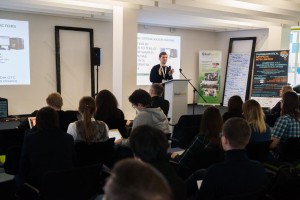 SkinHack is the first hackathon organized at Skoltech this year and has already set a very high benchmark in originality, level of organization and support, caliber of the challenge, quality of lecturers and mentors and level of engagement of academic and industrial communities. SkinHack presented a new approach to organizing the hackathon: the online 24-hours support was provided by the hackathon’s tutors – specialists in machine learning and deep learning from Skoltech, Youth Laboratories, Vision Labs, MSU, Insilico Medicine and MPTI. Every team could consult any tutor, unlike most hackathons where one tutor is assigned to a particular team.
SkinHack is the first hackathon organized at Skoltech this year and has already set a very high benchmark in originality, level of organization and support, caliber of the challenge, quality of lecturers and mentors and level of engagement of academic and industrial communities. SkinHack presented a new approach to organizing the hackathon: the online 24-hours support was provided by the hackathon’s tutors – specialists in machine learning and deep learning from Skoltech, Youth Laboratories, Vision Labs, MSU, Insilico Medicine and MPTI. Every team could consult any tutor, unlike most hackathons where one tutor is assigned to a particular team.
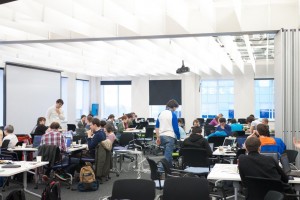 79 participants from Skoltech, Higher School of Economics, Moscow Institute of Physics and Technology, Moscow State University, and National Research Nuclear University divided into 14 teams. SkinHack technical infrastructure allowed every team to perform their calculation and test models on their own Amazon AWS p2.xlarge with Tesla K80 machines, a very advanced computation capacity for an event such as hackathon.
79 participants from Skoltech, Higher School of Economics, Moscow Institute of Physics and Technology, Moscow State University, and National Research Nuclear University divided into 14 teams. SkinHack technical infrastructure allowed every team to perform their calculation and test models on their own Amazon AWS p2.xlarge with Tesla K80 machines, a very advanced computation capacity for an event such as hackathon.
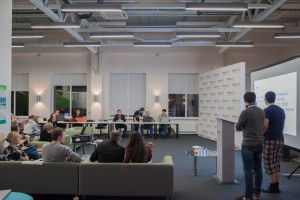 The unique dataset for the hackathon was provided by Beiersdorf AG (Nivea) and consisted of high quality standardized images linked to age. The prizes of Skinhack included prize fund of 300K roubles, Tesla K40 machine, small prizes from sponsors and a salaried internship at the data science department of Beiersdorf AG (Nivea, Hamburg).
The unique dataset for the hackathon was provided by Beiersdorf AG (Nivea) and consisted of high quality standardized images linked to age. The prizes of Skinhack included prize fund of 300K roubles, Tesla K40 machine, small prizes from sponsors and a salaried internship at the data science department of Beiersdorf AG (Nivea, Hamburg).
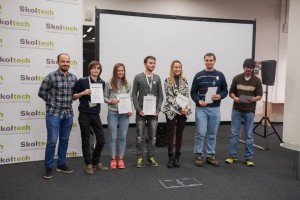 SkinHack participants demonstrated advanced programming skills. They managed to build an algorithm for age prediction of RMSE 2.42 and accurate algorithm for wrinkles tracking. Teams with the best algorithm performance were awarded money prizes, and the team with the most original approach received a Tesla K40 machine. Next week Beiersdorf AG will announce the winner for internship.
SkinHack participants demonstrated advanced programming skills. They managed to build an algorithm for age prediction of RMSE 2.42 and accurate algorithm for wrinkles tracking. Teams with the best algorithm performance were awarded money prizes, and the team with the most original approach received a Tesla K40 machine. Next week Beiersdorf AG will announce the winner for internship.
“SkinHack showed great interest in the challenge of detecting signs of aging using computer vision from both big companies and researchers. When we were organizing Skinhack, we did not expect that great interest. The stunning results they obtained in just 2 days are amazing and we now have aspiration to organize more hackathons among talented Russian students”, said Alexey Shevtsov, CEO of Youth Laboratories.
The participants expressed their deep appreciation to the high level of organization, very interesting challenge, supportive staff, excellent mentors and lecturers and they intend to participate in future Hackathons from AgeNet series.
“This Hackathon was a very interesting experience for us. We are excited to see how engaged and concentrated the students worked on the topic”, said Sven Clemann, head of applied biophysics department, Beiersdorf (Nivea).
The winning team in facial micro features tracking task is “Random Noise”, participants Olga Koval (Skoltech), Vladimir Glazachev (Skoltech), Alexey Martianov (MIPT), Shahrukh Athar (Skoltech), and Ksenia Karpova (Skoltech).
The winning team in the age prediction task is “ML SWAT”, participants Arthur Kuzin (MIPT) and Dmitriy Kozlov (MSU Lomonosov).
